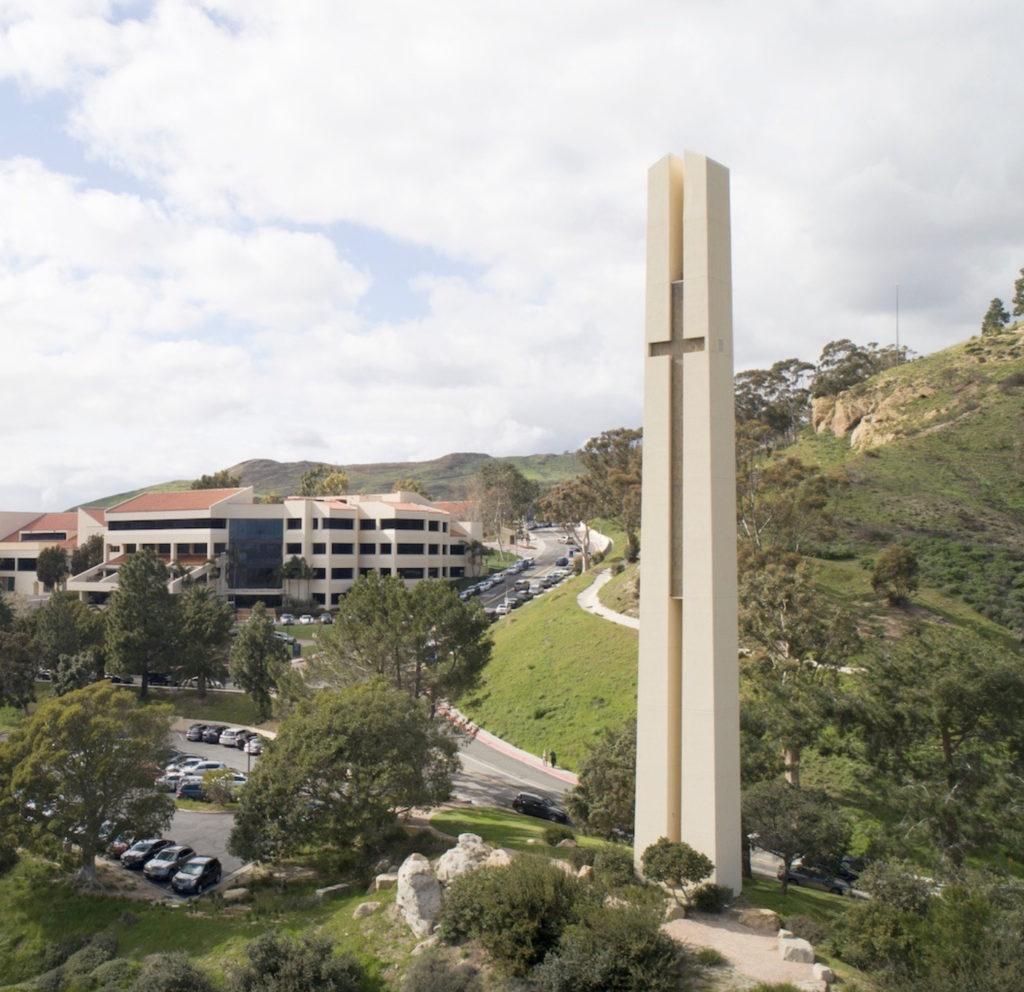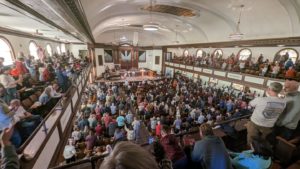Viewpoint diversity, so rare at other universities, is par for the course at Pepperdine’s School of Public Policy
Many college graduates say they were basically forced to regurgitate their professors’ political views in essays and tests.
Not at Pepperdine University.
“We have a real emphasis here on…

Many college graduates say they were basically forced to regurgitate their professors’ political views in essays and tests.
Not at Pepperdine University.
“We have a real emphasis here on viewpoint diversity,” says Pete Peterson, dean of Pepperdine’s School of Public Policy (SPP). “We are a school of politics, and we maintain that diversity of views is very important for the students’ educational process.”
Pepperdine’s SPP, which is celebrating its 25th anniversary this year, is one of more than 200 similar public policy graduate programs in the United States, but Peterson says Pepperdine’s philosophy is unique.
“Two things really set the policy school here apart,” Peterson told The Lion. “One is that we are one of the very few programs based at a Christian university. The importance of religious liberty and faith as shaping factors in leadership are some subjects we can take on uniquely here, both inside and outside the classroom.”
Peterson also says other programs are highly qualitative and technocratic – teaching that government is the solution to society’s problems and needs. In contrast, the SPP at Pepperdine is built on a clear understanding of America’s founding, and the idea that the nonprofit sector, public sector, and private sector all have roles in a healthy society.
“The program is a real passion of mine,” Peterson added. “I didn’t fully understand how hard life was for Christian, Jewish and conservative students. It became evident early on in my role here that something had really changed since I went to undergrad in the late 1980s.
“They are much more secularized and ideological – with left-leaning perspectives. It made me understand the importance of practicing and promoting viewpoint diversity, the understanding that all views are welcome but they will be tested. For our students who are going into careers in policy and politics, it’s very important to understand how the other side thinks, especially in today’s polarized society.”
Pepperdine’s School of Public Policy is widely recognized for balancing analytical coursework with classes in the history of policymaking and a “Great Books” approach to moral leadership.
The program has an enrollment of 80-90 students, and has produced some 1,000 alumni who are working in government, policymaking, nonprofit and political sectors. About 10-15% of enrolled students are from other countries.
As part of its 25th anniversary celebration, the School of Public Policy will launch a new degree program later this year.
The new Master of Public Policy and Leadership is a fully online degree, and those who enroll are expected to be adults who are 8-10 years into their careers, perhaps already working in government. The program will offer specializations in education policy leadership and innovation, and local government leadership.
“We are starting to see a number of citizens who are doing something else professionally, but in light of COVID are looking for ways to get involved in their local-level politics – such as school boards,” said Peterson, “and they want to be better educated.
“That’s been an interesting turn in the launch of this online degree. COVID has made everyday citizens much more aware of what’s going on in their local communities and how local government and local school boards work.”


